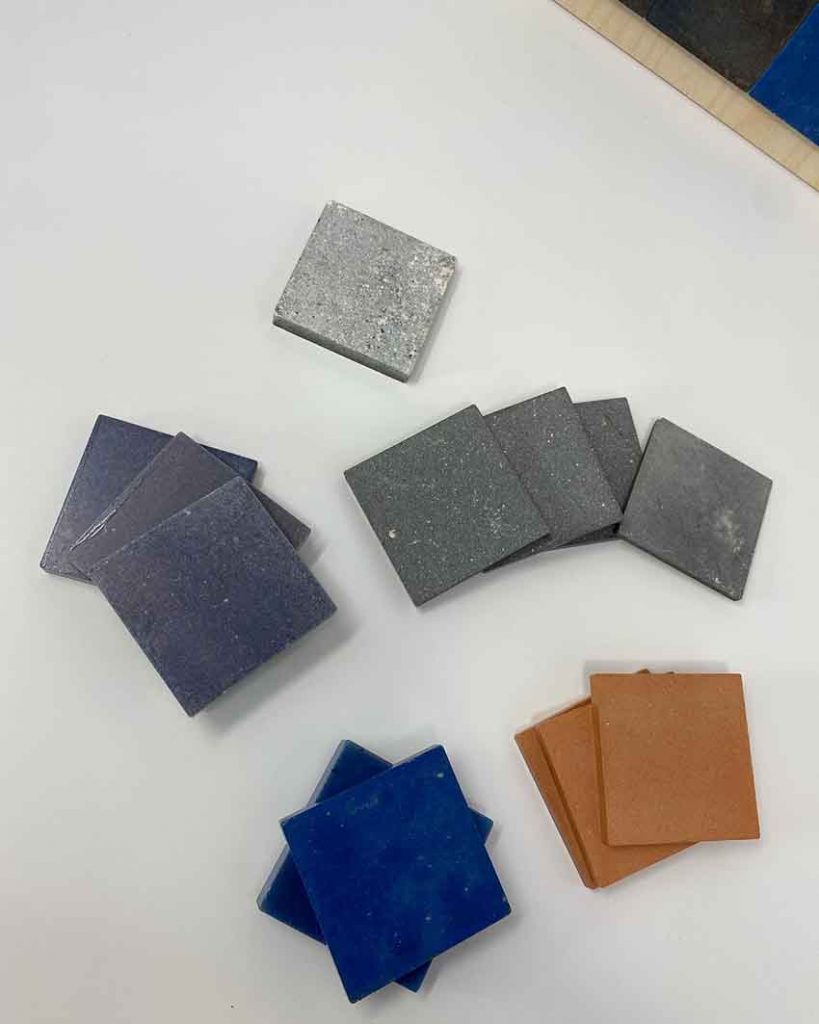Founded in 2021, DeakinBio is developing sustainable bio-inspired alternatives to decorative ceramic tiles. The bio-based composites (biocomposites) are inspired by natural materials such as seashells and tooth enamel. The materials are predominantly (about 95%) calcium carbonate obtained from natural sources, combined with a biopolymer binder that holds the material together.
Interview with Aled Roberts, CEO of DeakinBio Limited.
Easy Engineering: What are the main areas of activity of the company?
Aled Roberts: As an early-stage start-up company, the company is currently focused on R&D activities to further develop and optimise the materials. Over the coming months, we hope to start producing tiles at a small scale, being based at a local manufacturing facility in Manchester. Moving forwards, we intend to contract out production to an established ceramic tile manufacturer based in Italy.

E.E: What’s the news about new products?
A.R: We are developing the products that are functionally equivalent to ceramic tiles, whilst avoiding the need for high-temperature firing and other high-energy processing steps. This will cut the carbon footprint by over 90% relative to ordinary ceramic tiles. The materials also make use of waste products from the food and biofuels industries, further lowering their environmental impact.
E.E: What are the ranges of products?
A.R: We currently have two main products: Cyalith and Fabalith.
Cyalith is made from natural calcium carbonate and a biopolymer obtained from algae. We intend to source this biopolymer as a waste product from 3rd generation biofuels production.
Fabalith is made from calcium carbonate and a biopolymer obtained from chickpeas and other legumes. We intend to source the biopolymer as a waste product from the food industry.
E.E: At what stage is the market where you are currently active?
A.R: There is currently a significant and growing demand for sustainable alternatives to ceramic tiles, however current materials fall short in terms of physical properties, scalability and cost. We hope to overcome these challenges with our technology.

E.E: What are the most innovative products marketed?
A.R: Our products are highly innovative, even in the domain of biomaterials. Our company is pioneering this class of hybrid biomaterials and there are no other companies producing this kind of material yet.
E.E: What estimations do you have for 2023?
A.R: We intend to scale up production capacity to 10’s of square meters per day to start fulfilling initial orders.

